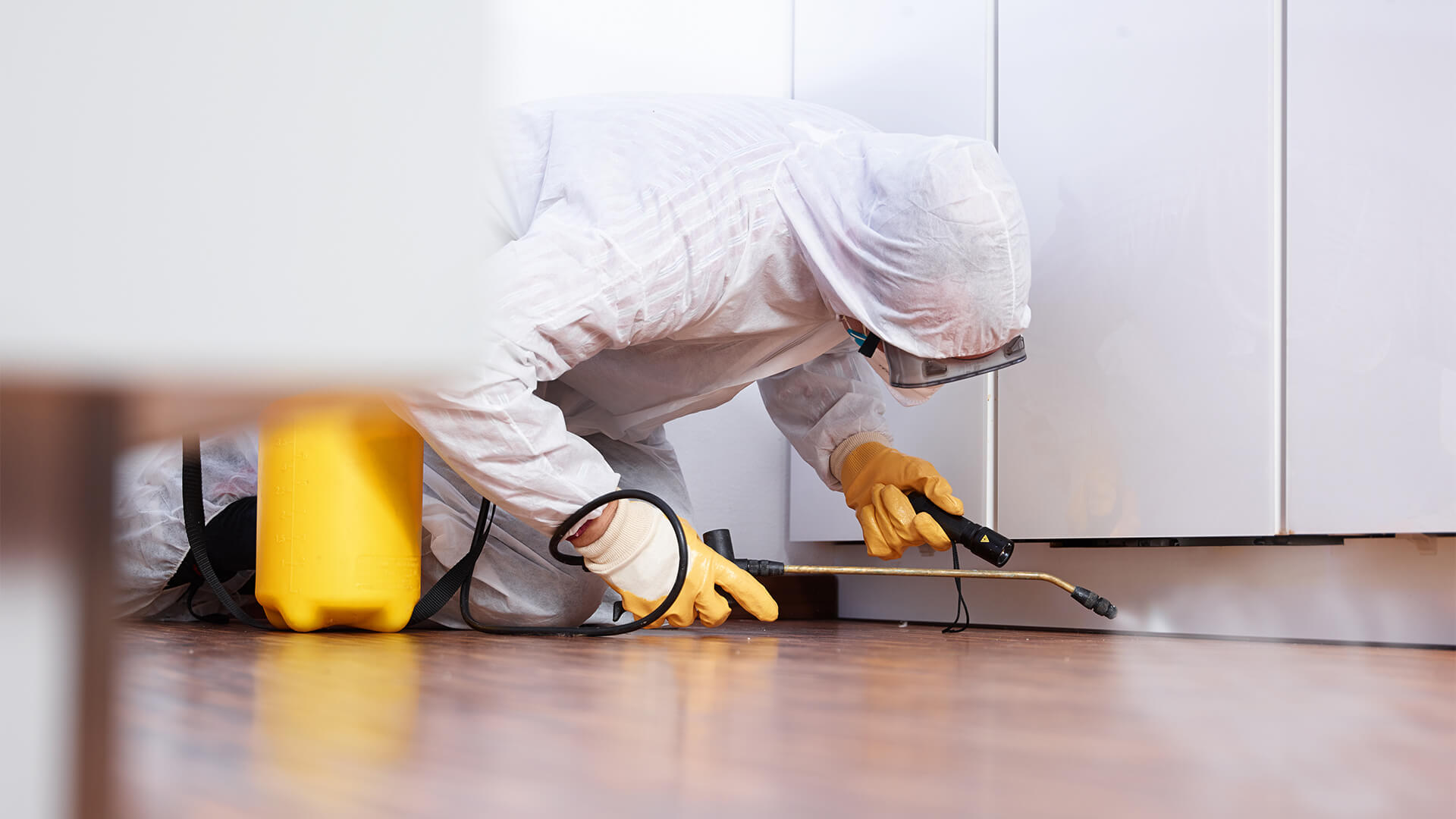Get professional Pest Control for complete protection and eliminate infestations.
Eco-Friendly Insect Control Approaches for Taking Care Of Wildlife in Urban Areas
Urban areas usually locate themselves at the crossway of human activity and wild animals, bring about one-of-a-kind difficulties in parasite management. Environment-friendly approaches stress lasting conjunction, employing techniques such as habitat adjustment and natural repellents to mitigate human-wildlife disputes. These strategies not just protect the atmosphere but likewise boost area involvement in wild animals management. As city populations proceed to grow, comprehending the dynamics of wildlife interactions comes to be increasingly important. What ingenious techniques can be carried out to make sure both ecological balance and urban security? Discovering this concern reveals an engaging landscape of possible services.
Comprehending Urban Wildlife Dynamics
Recognizing Urban Wildlife Dynamics is important for establishing efficient and environment-friendly insect control strategies. Urban locations are progressively becoming environments for numerous wildlife varieties, driven by elements such as environment fragmentation, food accessibility, and human encroachment. Identifying these characteristics permits a nuanced strategy to pest management that straightens with ecological concepts.
Urban wildlife often consists of varieties such as raccoons, squirrels, and birds, which adapt to city atmospheres, discovering particular niches in eco-friendly rooms, parks, and even suburbs. Their visibility can lead to problems with people, specifically when they exploit personnels for food and sanctuary. Understanding the habits and ecological functions of these varieties informs methods that decrease negative interactions while advertising biodiversity.
Furthermore, acknowledging the interdependencies within city communities assists in recognizing critical locations for habitat preservation and repair. This expertise adds to the development of integrated parasite management (IPM) methods that think about the eco-friendly equilibrium, therefore reducing reliance on unsafe chemicals. By fostering coexistence between humans and urban wildlife, cities can produce much healthier atmospheres that profit both citizens and neighborhood ecological communities, leading the way for sustainable urban living.
Natural Repellents and Deterrents
Natural repellents and deterrents offer a sustainable choice to traditional insect control approaches by harnessing the power of nature to keep undesirable species at bay. These environment-friendly services usually utilize plant-based ingredients, important oils, and various other normally happening compounds that hinder bugs without hurting the atmosphere.
One effective all-natural repellent is peppermint oil, which is recognized to ward off rats and bugs. Its strong aroma is undesirable to numerous pests, making it a preferred option for urban settings. Vinegar and citrus peels can serve as deterrents, as their solid odors are generally unattractive to different wild animals.
Furthermore, diatomaceous earth is an all-natural powder that can be spread in locations susceptible to insect task, efficiently dehydrating and preventing insects without posturing risks to non-target varieties. Moreover, garlic sprays and neem oil are recognized for their capacity to ward off a variety of bugs, including both bugs and larger wildlife.
Applying these all-natural repellents not just decreases dependence on chemical pesticides but likewise advertises a healthier city environment, fostering a much more well balanced conjunction between people and wildlife. By using these strategies, urban areas can properly manage insect populaces while decreasing environmental effect.
Environment Alteration Techniques
Efficient habitat adjustment strategies play an important duty in lasting parasite management by altering the atmosphere to make it much less for pest invasions. By recognizing the ecological dynamics of urban locations, residential property proprietors can apply strategic modifications that discourage insects while promoting biodiversity.
(Termite treatment Port Charlotte)One main method entails keeping correct cleanliness. This consists of normal waste elimination, safeguarding garbage can, and eliminating standing water to reduce breeding websites for pests and rats. Additionally, landscape design techniques such as choosing native plants can enhance eco-friendly equilibrium, giving environments for useful microorganisms while minimizing resources for parasites.
Another vital technique is to seal entry factors in structures. Evaluating and fixing cracks in structures, walls, and windows can considerably reduce parasite gain access to. Additionally, creating physical obstacles, such as fences or plant barriers, can prevent wild animals motion right into human-inhabited areas.
Integrated Pest Management Practices
Structure upon habitat alteration methods, incorporated bug management (IPM) techniques provide a holistic technique to controlling bug populaces while reducing environmental influence. IPM combines different strategies, including organic, social, mechanical, and chemical controls, to achieve reliable bug management.
Organic control involves the introduction Pest inspection Port Charlotte of all-natural killers or bloodsuckers to decrease bug populaces. Cultural methods, such as plant turning and hygiene, disrupt pest life cycles and lessen their environments - Pest Control. Mechanical controls, like traps and obstacles, give prompt remedy for insect stress without chemical treatment
Chemical controls are made use of as a last hope, concentrating on targeted applications that restrict harm to non-target species and the environment. The selection of environmentally pleasant chemicals, when necessary, is important to the IPM structure. Furthermore, monitoring parasite populaces and examining potential damage helps inform decision-making, guaranteeing that interventions are timely and effective.
Neighborhood Participation and Education And Learning

(Mole Removal)Workshops and informational sessions can outfit locals with understanding concerning indigenous varieties, environment conservation, and effective non-toxic pest monitoring methods. Cooperation with colleges, regional organizations, and government firms better improves educational outreach, guaranteeing that important information gets to varied audiences.
Moreover, community-led campaigns, such as neighborhood clean-up days and habitat reconstruction jobs, not only advertise biodiversity however likewise strengthen area ties. Pest Control. By encouraging residents to share their experiences and monitorings, neighborhoods can develop targeted approaches that attend to particular neighborhood parasite problems
Including comments from residents right into insect monitoring plans enables a much more responsive and flexible approach to wild animals challenges. Eventually, notified and involved areas are essential to attaining long-lasting success in environmentally friendly parasite control, causing much healthier urban settings that respect both human and environmental demands.

Verdict
In conclusion, eco-friendly parasite control comes close to offer lasting options for managing metropolitan wildlife. By prioritizing habitat modification, using all-natural repellents, and executing integrated parasite management practices, areas can promote a harmonious coexistence with regional fauna.